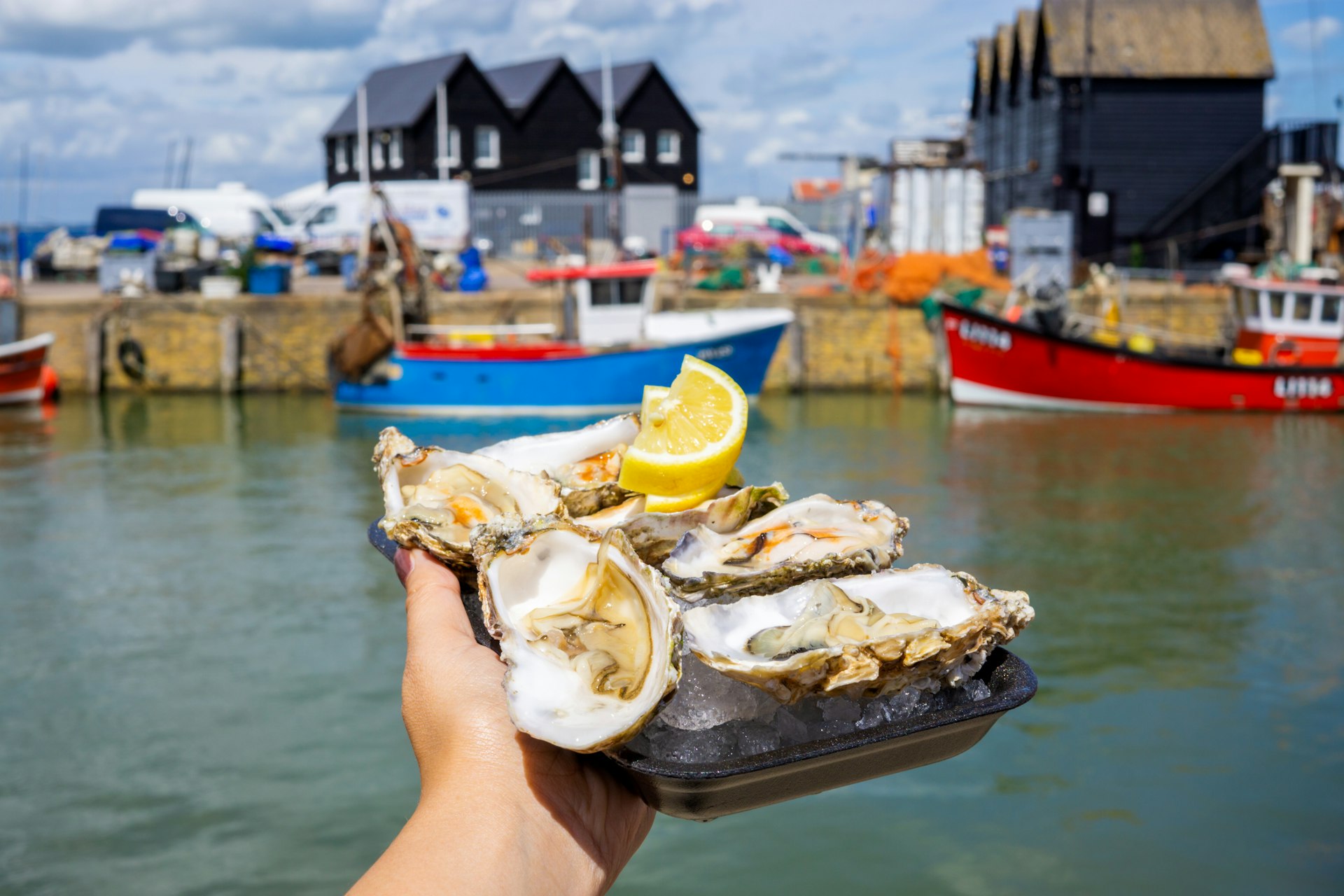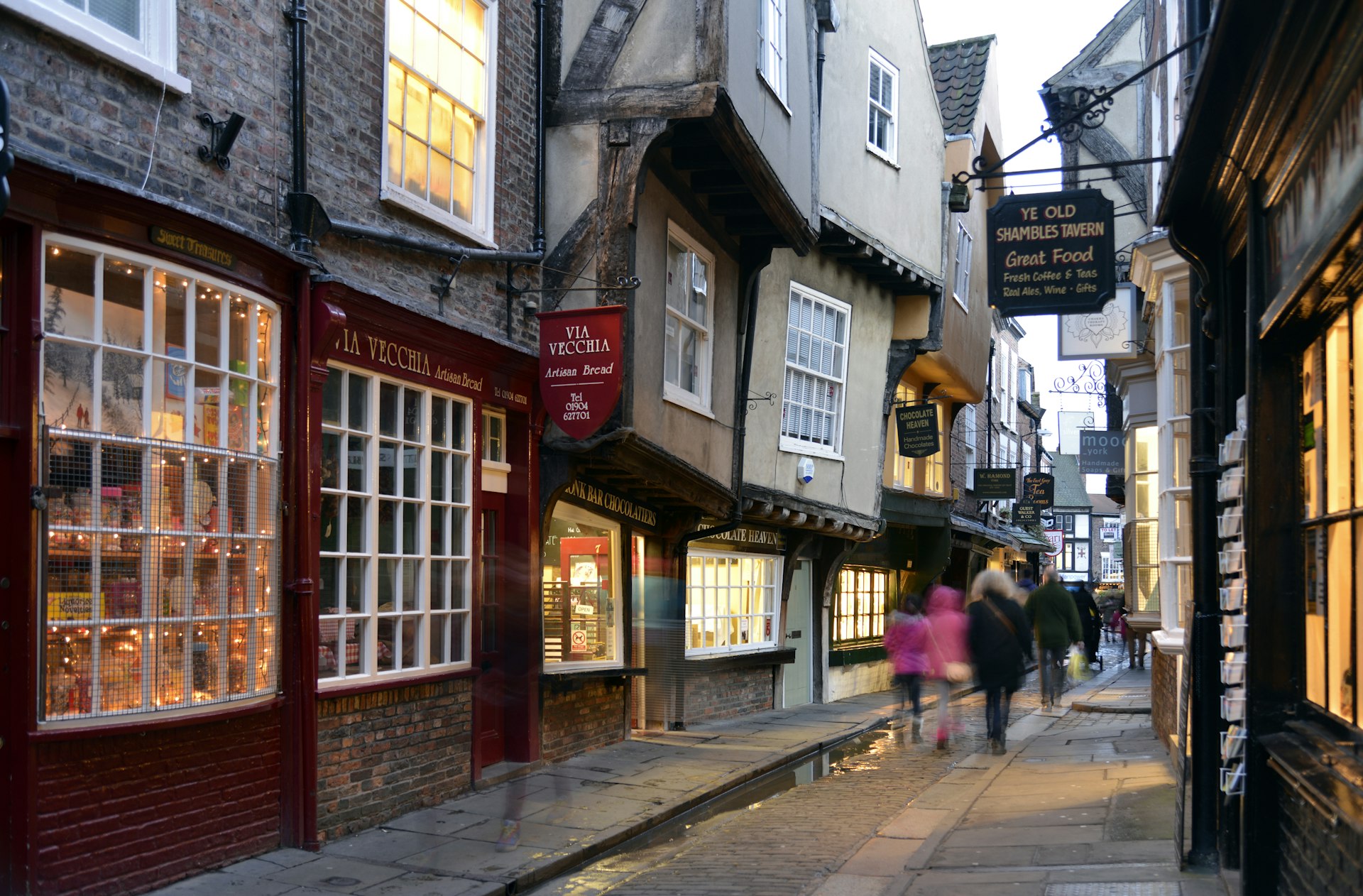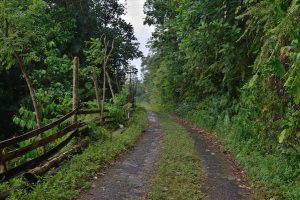
Our Where Locals Go series features holiday destinations that are often overlooked by international visitors but cherished by locals. Here, we ask four England experts for their top ideas.
Who can resist the lure of world-class cities like London, Liverpool and Manchester? Still, it’s in the idyllic countryside where visitors can find the true soul of England.
And that’s why well-traveled country routes like those running through the Cotswolds and the Lake District draw so many visitors. Where can you find spirit-stirring rural beauty – and even some urban delights – without the crowds? Let our quartet of England experts take it from here.
Explore the planet’s most surprising adventures with our weekly newsletter delivered to your inbox  L’al Ratty the steam train © Piers Pickard
L’al Ratty the steam train © Piers Pickard
Steam trains and Roman ruins on the Lake District’s coast
Piers Pickard is the managing director of publishing at Lonely Planet; his first job took him to the Lake District in the 90s and he vowed he’d return one day to raise a family there.
I first camped at the tiny coastal village of Ravenglass in England’s Lake District National Park nearly 10 years ago, and I’ve been back every year since – even if I take the softer option of staying in a cottage these days.
The Lake District is hardly a secret: 16 million people visit each year to hike its fells (the local word for a mountain), paddle its lakes and eat at its Michelin-starred restaurants (more than anywhere outside London).
But Ravenglass has all that’s best about the region – without the crowds. The village’s main street ends abruptly on a beach where three rivers meet. From here you can walk past Roman ruins (this was the northernmost port of the Roman Empire) to 13th-century Muncaster Castle, with its gardens and bird displays.
For the more adventurous, drive 20 minutes up to Wasdale, home to England’s highest peak and deepest lake. Or puff seven miles up to quieter Eskdale on “L’al Ratty,” a tiny steam train, from where you can cycle back down to Ravenglass for fresh seafood and waterfront views at The Inn. End your evening on the village green slurping a Ravenglass Handmade Ice Cream procured from the “honesty box” next door.
Where Locals Go: Ireland
 Oysters from a harbor in Whistable along the Kent coast © Shutterstock / cktravels.com
Oysters from a harbor in Whistable along the Kent coast © Shutterstock / cktravels.com
Windswept cliffs and empty beaches along the Kent coast
Claire Naylor is a travel writer and editor who lives in London.
One summer, some friends and I rented a cottage in a village between the port of Dover and the town of Deal. We swam in the sea, whimpering at the cold water while regular Channel bathers chuckled at our absurdity before wading out without a single shiver. Later, as light still lingered in the sky, we spent the evening wrapped in hoodies and damp towels, enjoying scampi and chips at the beachfront picnic benches of the Zetland Arms.
The Kent coast in the southeast of England has been a staple day-trip destination for me to take the kids over the years, with many road trips along the north side. We browse the stalls of the quaint harbor at Whitstable, search for the oldest bit of graffiti we can find in the Shell Grotto in Margate and pause to picnic among the unusual chalk stacks of Botany Bay.
But it’s this southern stretch of coast between Dover and Deal that has remained my favorite. I head back here for windswept hikes along the top of the iconic White Cliffs of Dover and meandering strolls through the nature reserve that leads down to the often-empty beach at Samphire Hoe, spotting butterflies as I go.
Where Locals Go: Italy
 The Shambles in central York has changed little over the centuries © Getty Images / iStockphoto
The Shambles in central York has changed little over the centuries © Getty Images / iStockphoto
Markets, afternoon tea and Gothic wonders in York
Zara Sekhavati is Lonely Planet’s London-based destination editor for Africa and the Middle East.
As a proud Northerner, York is a place I keep returning to time and time again. Its cute, cobbled streets, lines of independent shops and rich history lure me back every time.
York is the perfect place for wandering. The utterly charming Shambles is one of the best-preserved medieval streets in Europe; the nearby Shambles Market sells all sorts of Yorkshire produce, from local cheese to fudge, and is also a perfect lunch spot. Elsewhere in the center, café-bar-deli The Hairy Fig is a favorite, while Bettys takes the prize for the number-one spot for afternoon tea in York. The extraordinary, Gothic York Minster is a must-see: if you’re in the city on a Sunday, you can attend the Evensong service, featuring the adult choir singers.
End your evening at Bab Tooma for some traditional Syrian food; the mixed meat grills here are divine. Before heading back to your hotel (Safestay York Micklegate is a great, centrally located choice for accommodation), enjoy some live music at The Habit, where the crowd really gets going. You’ll likely be seated next to a friendly dog or two.
This is Yorkshire, after all.
Where Locals Go: Spain
 Breathtaking Bamburgh Castle looms over the coast of Northumberland, in England’s northwest © Getty Images
Breathtaking Bamburgh Castle looms over the coast of Northumberland, in England’s northwest © Getty Images
Fish and chips and national parks in Northumberland
Lonely Planet’s VP of Experience, Tom Hall, is based in London, but is usually dreaming of escaping to the farthest north of England.
Around 300 miles from my home in London, up either the East Coast Main Line by train or the A1 (the old Great North Road) lies the still vastly underappreciated region of Northumberland. This area is fringed by one of the country’s best stretches of coast to the east, with the Scottish border meandering around to the north and west. There’s so much to do here that our repeated family holidays and the occasional cycling trip have only left ever-longer to-do lists for visits to come.
Seaside Bamburgh is (possibly) the highlight, with its castle looming over a vast, beautiful and uncrowded stretch of sand. The shallow sea here isn’t as cold as you might think. At nearby Seahouses, warm up with fish and chips – best enjoyed on benches gazing out to the Farne Islands, which you can reach by boat trip from here. There’s no need for a boat to get to Holy Island, linked to the mainland by a causeway trod by pilgrims for centuries. Spending a few hours marooned here at high tide, strolling the ancient tracks and beaches, is a special experience indeed.
Further south, a wonderful walk takes visitors along the coast from Craster (don’t leave without trying a kipper, a locally famed smoked herring) to the ruins of Dunstanburgh Castle, past seaweed-chomping cows and outrageously beautiful sea views.
Inland, gentle farmland rolls west until reaching the Cheviot National Park, with its wonderful walking paths, including up the Cheviot itself (best done from the College Valley). Snag a parking permit to save your legs on some of the walk. Compared to the Lake and Peak Districts, you’ll be strolling in glorious seclusion. Anyone with any Harry Potter enthusiasts in their party should plan a day in Alnwick: first to visit the castle that featured in the films, and then to while away several hours browsing the shelves of Barter Books, a vast treasure chest of a bookshop housed in the former Alnwick station.
Edinburgh is only an hour from the imposing frontier town of Berwick-upon-Tweed by train, with some of the finest towns of the Scottish Borders including Jedburgh and Melrose also within close proximity.
Where Locals Go: France



